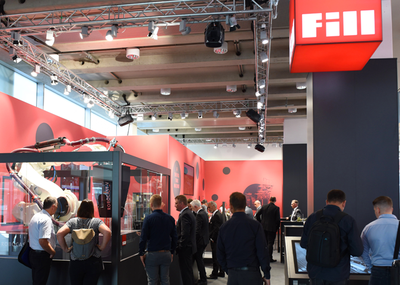Dr. Monika Griefahn was Environment Minister of Lower Saxony, Member of the Bundestag and Member of the European Parliament for the Social Democrats, co-founder of Green Peace Germany and active on many levels. She has in-depth knowledge and a clear opinion on the current issues of the mobility transition.
Thomas Fritsch (TF): Dr. Griefahn, for parts of the automotive industry and its suppliers, battery-electric mobility cannot be the last word, especially as the registration figures for so-called BEVs are not increasing to the politically desired extent. Where do we stand in the transition of drive technologies in Europe?
Monika Griefahn (MG): The share of renewable energies in transport is stagnating at a low level. This means that the transport sector continues to be the problem child of any climate protection efforts. With just 7.5 percent renewables in the total fuel supply in road and rail transport, the European transport sector is falling short of even the binding ten percent quota of the first European Renewable Energy Directive - including important driving forces such as France, Germany, and Spain. It is important to adopt ambitious targets. But implementation is in the hands of the industry. If the path to these ambitious targets is artificially prolonged or even made more difficult, these targets will simply not be achieved. Even if our understanding of climate policy in Europe continues to grow, we are honestly still at the beginning of the energy transition - not just in transport, but in all sectors.
"We must not just focus on tailpipe emissions"
TF: Are the EU's climate targets of phasing out combustion engines by 2035 still realistic?
MG: No. This is underlined by almost daily reports about the slow ramp-up of electromobility. Some manufacturers have already communicated that their product portfolio is clearly geared towards what customers want - and they are still buying combustion engines. Even in China, our biggest competitor, combustion technology will continue to play a role for decades to come, especially in regions where full electrification is difficult to implement.
TF: Instead of focusing solely on electromobility, sceptics like to mention the much-used term "technology openness". Which technologies do you still see in the race at the moment, and what chances do the so-called e-fuels have?
MG: All technologies have their “raison d'être” (reason of existence) as well as their benefits if they can be operated in a climate-neutral way in the long term. It is also important to emphasize that all technologies have advantages and disadvantages. A sensible, practicable and affordable change in the transport system must be introduced. Electromobility, hydrogen and eFuels will establish themselves in the long term in various applications in our transport sector. The important thing is that we think about climate protection along the entire value chain and not just focus on tailpipe emissions. Effective climate protection does not ignore any greenhouse gas emissions that arise during the production or transportation of vehicles, batteries, or fuels. If we establish this way of thinking, all technologies have a chance.
"Existing fleets also need to be considered"
TF: What specific advantages does the use of e-fuels offer, and where do you see the most interesting potential applications in the mobility of the future?
MG: In combination with electromobility, e-fuels act as an additional accelerator for reducing CO2 emissions in the transport sector and thus for real and pragmatic climate protection. CO2-neutral fuels not only enable climate-neutral operation of the global fleet of cars, trucks, airplanes, and ships, but can also be used as a substitute for crude oil in the chemical industry. At the same time, eFuels are the solution for areas in which electrification is difficult to achieve - we are talking about heavy goods traffic, the off-road and maritime sectors and aviation, among others. The aim here is to exploit economies of scale and enable broad fields of application for rapid price reductions. An efficient and rapid traffic turnaround can only be realized in combination with eFuels and electrified drives. Factual technology bans cannot be the answer.
TF: Do e-fuels have a realistic chance and what would have to change technologically, politically, and socially?
MG: There is no alternative to the use of e-fuels - especially in aviation and shipping. Whether and to what extent eFuels will also play a role in road transport will be decided by politicians. And this should not be delayed again by years in Brussels, because the enormous number of vehicles, ships, aircraft, and off-road applications worldwide will continue to rely on fossil fuels without an alternative.
So far, the political framework conditions have clearly stood in the way of the market ramp-up of eFuels. A lack of planning and investment security, overly restrictive and complicated requirements for the production of green hydrogen or the import of renewable fuels into the European Union are paralyzing the industry. Complaints are often made that eFuels are only produced in very small quantities and are too expensive. Critics simply ignore the fact that scaling up is not economically attractive under the current framework conditions. If we want to persuade the big oil companies to invest their money in climate protection, it is imperative that this area is made more attractive.
"Europe is sometimes too restrictive"
TF: As a showcase continent, Europe is currently seeking its role in a changing geopolitical landscape. What impetus could come from Europe that not only presents climate protection in strictly regulatory terms, but also leads the way with enthusiasm and invites people to participate?
MG: I am convinced that Europe has already assumed its role as a global climate policy pioneer. That is a good thing and to be welcomed. But with our restrictive approach, we are curtailing the leading role of our companies and threatening to fall behind in many areas. For some time now, we have been focusing too much on ourselves and forgetting that net-zero 2050 is a global project. Europe must open up again, enter into binding international partnerships, exploit synergy effects, and provide a boost in new markets with targeted subsidies and open regulations. It is hardly possible to implement framework conditions in 2030 that we will not achieve until 2040. Our economic area must become attractive again - for German, European and international companies.
TF: Thank you very much for the interview, Dr. Griefahn, and good luck with your work.
About Dr. Monika Griefahn:
Dr. Monika Griefahn
Chairwoman of the Board
Dr. Monika Griefahn is Chairwoman of the Board of the eFuel Alliance and a founding member of Greenpeace Germany. From 1984 to 1990, Monika Griefahn was the first woman to serve on the International Board of Greenpeace. From 1990 to 1998, she was Minister of the Environment in Lower Saxony. Then as now, she is committed to a new energy policy: for renewable energies and the phasing out of nuclear energy. From 2012 to 2018, Monika Griefahn was also Director of Environment and Society at the cruise line AIDA Cruises. She played a key role in the company's reorientation towards the use of liquefied natural gas as a ship fuel. Monika Griefahn is involved in a wide range of voluntary work and was awarded the Order of Merit of the Federal Republic of Germany in 2018
About e-fuels:
E-fuels, also known as synthetic fuels or power-to-liquid (PtL) fuels, are a much-discussed technology in the context of the energy transition and the reduction of greenhouse gas emissions in the transport sector. They have the potential to play a significant role in the decarbonization of industries that are difficult to electrify, such as aviation, shipping, and heavy-duty vehicles. Here are some points on the importance of e-fuels:
1. climate protection: e-fuels are often seen as a possible solution to reduce CO2 emissions in the transportation sector. They are produced from renewable energy sources such as solar, wind or biomass and can therefore make a significant contribution to reducing greenhouse gas emissions.
2. flexibility: In contrast to battery electric vehicles, vehicles with combustion engines that run on e-fuels can be refueled quickly and have a longer range. This could play an important role, especially in applications such as long-distance transportation, aviation, and shipping, where battery technology does not yet offer the same range and performance as fossil fuels.
3. infrastructure: e-fuels could use existing infrastructure for the distribution and use of liquid fuels, which could facilitate the transition to renewable energy in the transport sector. This would mean that existing filling station infrastructures and logistics chains could largely be retained.
4 Technological challenges: Despite their potential, e-fuels still face numerous technological challenges. The production of e-fuels is energy-intensive and requires significant amounts of renewable energy. There are also questions about the efficiency of the process and the scalability of production.
5. competition with other technologies: e-fuels compete with other technologies to decarbonize the transport sector, such as battery electric vehicles, fuel cell vehicles and the use of biofuels. Deciding on the best strategy to reduce greenhouse gas emissions in the transportation sector depends on various factors, including cost, infrastructure availability and policy framework.










